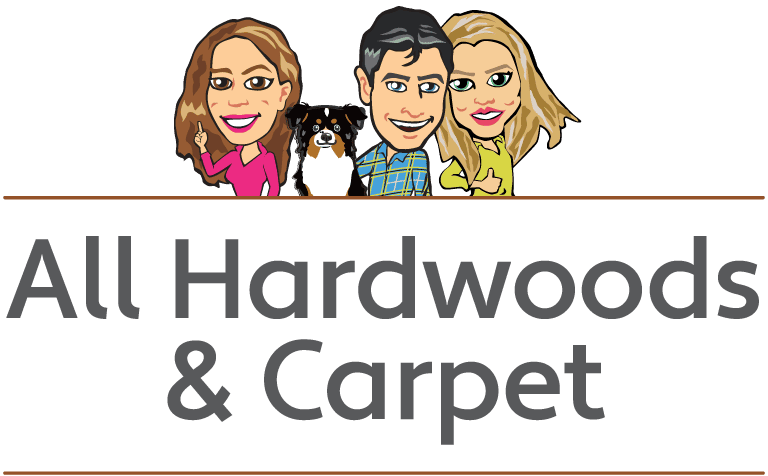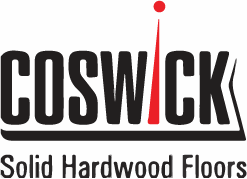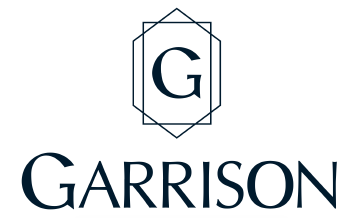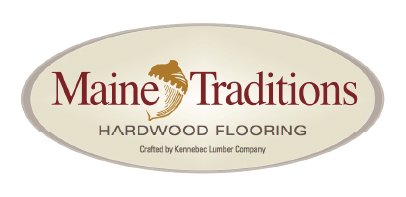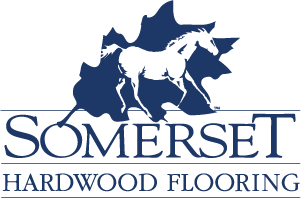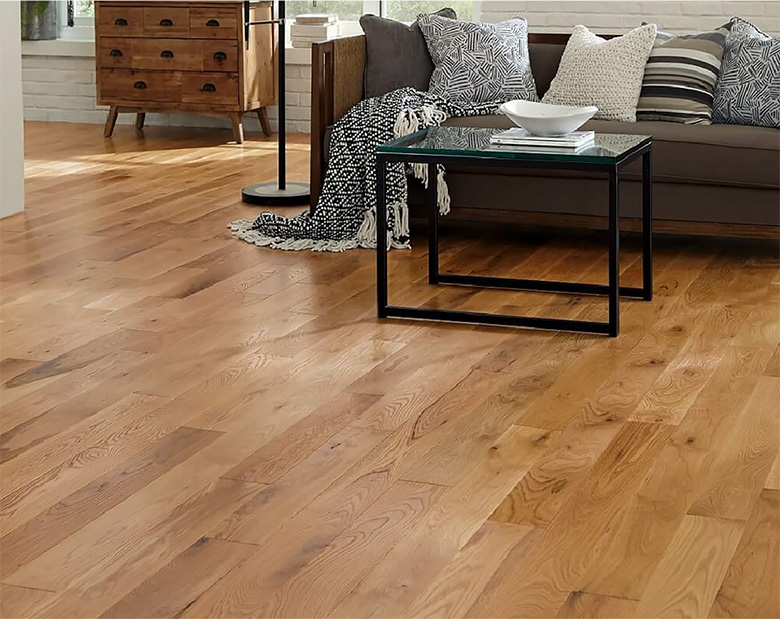
why hardwoods?
- Durability and longevity
- Timeless aesthetic appeal
- Increases home value
- Easy to clean and maintain
- Improved indoor air quality
get to know your hardwood floor options
solid hardwood
unfinished
- 100% hardwood
- Can be sanded 4-5 times
- Good insulator
- Many color/stain options
Well maintained, solid hardwood floors can increase the market value of both residential and commercial properties. Solid hardwood flooring, like fine antique furniture, is worth the extra care it requires to preserve and protect your beautiful investment.
solid hardwood
pre-finished
- Easy, one-day installation
- No on-site sanding/refinishing required
- Resists more scratches than on-site applied finishes
Pre-finished solid hardwood offers the same benefits as unfinished hardwoods, in addition to the three above.
engineered
hardwood
- Can be sanded 2-3 times
- Excellent in high moisture areas
- Installs over concrete slabs
Engineered hardwood is not "fake wood". The top layer is 100% real hardwood ranging in thickness from 2-5 mm. The top layer is bonded to a plywood core. Engineered hardwood is not laminate. It's high quality, real wood, more economical alternative to solid hardwood.

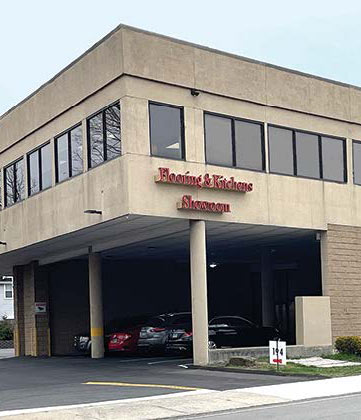
We take pride in offering only trusted, premium quality brands for affordable prices. Click on any of the brands below to view in the catalog.
VISIT OUR SHOWROOM
194 Main St, Suite 2-NW Norwalk, CT 06851
real estate agent recommendations
72%
of agents said flooring is a very important area for potential buyers
87%
of homebuyers want hardwood flooring
93%
of realtors said instaling hardwood floors is a good investment
"wood flooring increases a home's saleability"
Percentage of agents who agree with the above statement

hardwood floors deliver a great return on investment
Estimated Cost Recovery (by Realtors)
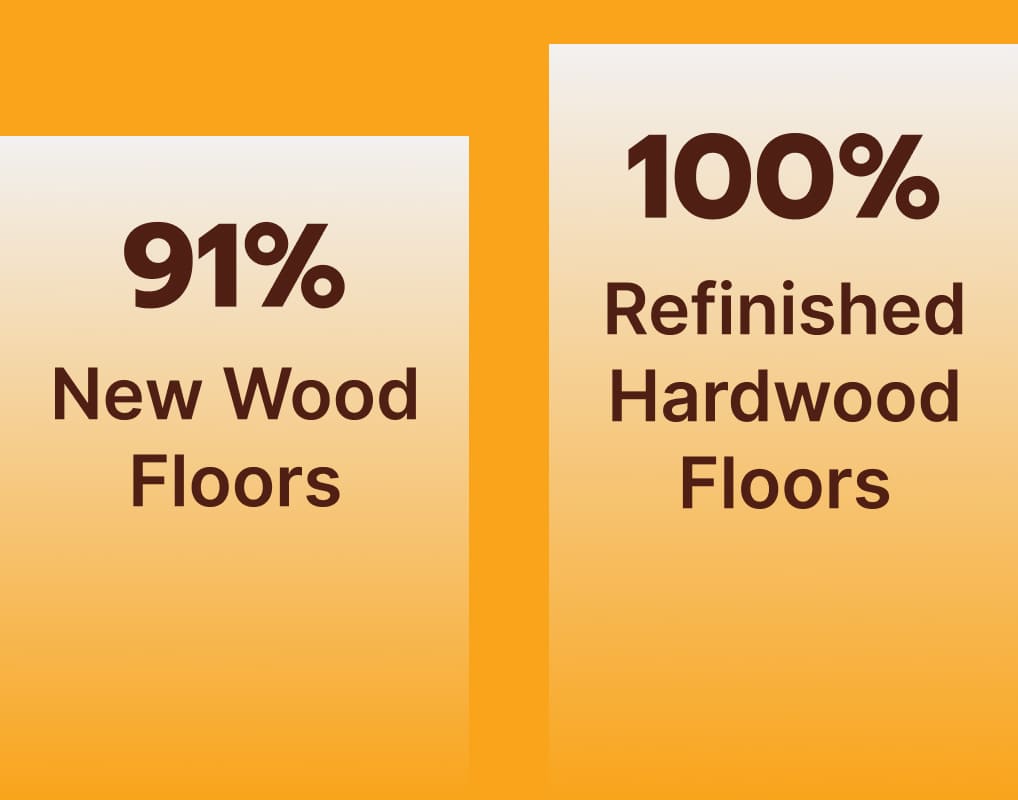
Hardwood FAQ
Maintaining hardwood floors involves regular sweeping or vacuuming to remove dirt and debris and occasional mopping with a wood floor cleaner. It is essential to avoid excessive water and harsh chemicals, which can damage the wood. Placing rugs in high-traffic areas and using furniture pads can help protect the floor's surface.
Hardwood floors can be installed over concrete, but proper preparation is required. A moisture barrier is essential to prevent moisture from seeping into the wood. Installation methods include using a plywood subfloor, adhesive, or floating floor systems designed for concrete subfloors.
Many types of wood are available for hardwood flooring, including oak, maple, cherry, walnut, and hickory. Each wood species has unique grain patterns, colors, and hardness levels, allowing homeowners to choose the perfect option to match their style and needs.
Hardwood flooring is suitable for homes with pets and children, though it may show scratches and dents more quickly than other flooring types. Selecting a harder wood species, using rugs, and maintaining the floors properly can help minimize damage and keep them looking beautiful.
With proper care and maintenance, hardwood flooring can last for decades, often over 50 years. Sanding and refinishing the floors extends their lifespan, allowing homeowners to restore the wood's original beauty and update its appearance as desired.
Solid hardwood floors can be refinished 4-5 times, depending on the thickness of the wood. Engineered wood floors can be refinished anywhere from 2-4 times depending on the thickness of the wear layer. Refinishing involves sanding down the surface to remove scratches and imperfections, then applying a new stain and protective finish, which can give the floors a fresh, new look.
The top layer of Engineered Hardwood flooring is called the wear layer. This genuine hardwood layer gives the beautiful appearance of solid hardwood. A thicker wear layer means more durable flooring. For example, the thickest available wear layer (4mm) can be resanded three to four times, resulting in an estimated lifespan of between 50 and 100 years. Compared to the thinnest wear layer (1mm), which is too thin to withstand a resanding, the estimated lifespan is shorter, about 20 to 30 years.
